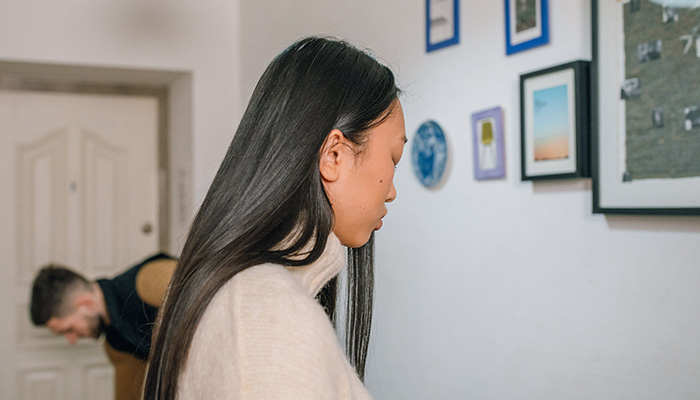Leave Defensive Reactions Behind and Learn Solutions to the 2 Most Common Barriers to Constructive Conflict
Leave Defensive Reactions Behind and Learn Solutions to the 2 Most Common Barriers to Constructive Conflict
By Tara Rullo, LCSW
What is the defensiveness trap?
Defensiveness escalates conflict, but many people still get trapped in a pattern of reacting defensively in conflict. This is what I call the defensiveness trap. Longitudinal research conducted by the founder of Gottman Couples Therapy, Dr. John Gottman, shows that over time, defensiveness kills relationships.
Most people fall into the defensiveness trap because they feel attacked and want to protect themselves. While defending oneself can seem like a justified response to conflict, in order to find fulfillment in relationships, we must learn to have constructive disagreements. Have you ever had a constructive disagreement with your partner? You’ll know you have based on how you both feel afterward: understood, close and connected.
The one and only way to avoid the defensiveness trap:
Taking responsibility is the one and only thing we can do to avoid the defensiveness trap.
Often in conflict we feel blamed, attacked, or criticized. In relationship therapy, couples learn to offer constructive feedback to one another. Feedback given in a softened way can lessen defensiveness in the partner receiving the feedback.
But even when one partner offers a very gentle form of feedback, the other partner often still gets defensive! It is a serious challenge to unlearn this ingrained response.
In those moments, I ask the defensive partner to see if they can take any ounce of responsibility for the complaint that was just lodged against them.
At this point, I often get asked one or both of these questions:
What if I don’t agree that I did something wrong?
When do I get to complain about my partner?
These are valid questions. They can also turn into barriers.
Let’s explore these 2 questions as potential barriers to taking responsibility through an example:
Your partner let you know that they are frustrated because you didn’t take the dog on an afternoon walk, and subsequently the dog used the carpet as a bathroom. Do you still have to take responsibility if (1) you didn’t actually agree to take the dog out today and/or (2) you walk the dog more than your partner, and that bothers you.
Sometimes, we know we are wrong. If that’s the case, taking responsibility looks like this:
You’re right. I did say I would take the dog out when we were planning our days this morning. Then, this afternoon I got busy and forgot. I’m really sorry. I’ll set a reminder for myself next time.
But here is something we need to get very clear on, even if we don’t think we are completely wrong, and even if we have a counter-complaint, we should still try to take some responsibility for what our partner is bringing up. (NOTE: this does not apply in emotionally abusive or manipulative relationships)
In our example with the dog walk that didn’t happen, you could say:
I’m sorry you came home to a mess on the carpet. I think we had a misunderstanding this morning because I don’t remember saying that I could do the afternoon walk. But I probably didn’t communicate clearly because I was in a rush. I’m sorry about that.
We always have some agency. In this example, acknowledging that your communication could have been better paves the way for both of you to problem solve the issue of walking the dog, rather than simply argue about who is right.
Wait, you might be saying, I didn’t get my chance to complain that I’m the one who walks the dog more often!
Okay, that’s fair. And here’s the rule. When your partner has a complaint, first hear them out and take responsibility for any part you can. Once the conversation is completely resolved, then you can raise a new issue.
In this example you might say something like:
I’d really like to talk more about how we divide the task of walking the dog. I’ve been doing it a lot and would appreciate it if you could take more of that on. Are you open to having that conversation?
For those looking to learn more about defensiveness, you may enjoy this piece about the two types of defensive reactions.



